Navigating the Kingdom: A Comprehensive Guide to Thailand’s Provincial Map
Related Articles: Navigating the Kingdom: A Comprehensive Guide to Thailand’s Provincial Map
Introduction
With enthusiasm, let’s navigate through the intriguing topic related to Navigating the Kingdom: A Comprehensive Guide to Thailand’s Provincial Map. Let’s weave interesting information and offer fresh perspectives to the readers.
Table of Content
Navigating the Kingdom: A Comprehensive Guide to Thailand’s Provincial Map
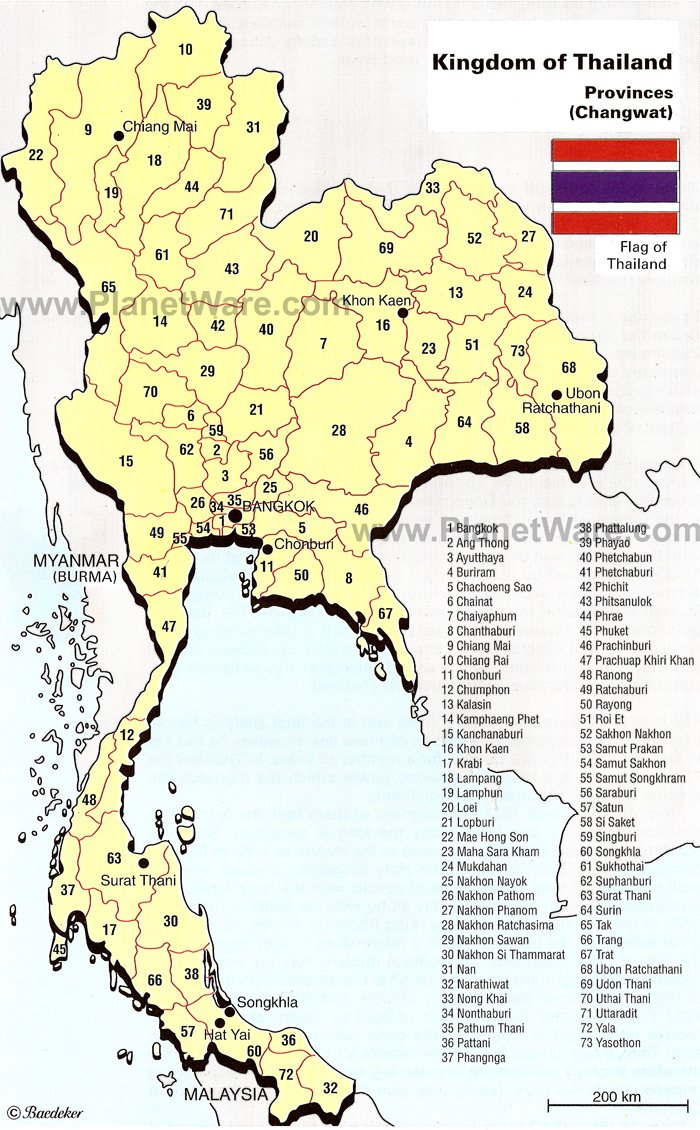
Thailand, the "Land of Smiles," is a vibrant and diverse country, boasting a tapestry of cultures, landscapes, and experiences. Understanding its geographical structure, particularly its provincial map, is crucial for travelers, researchers, and anyone seeking to delve deeper into the heart of this Southeast Asian gem. This comprehensive guide explores the intricacies of Thailand’s provincial map, highlighting its significance for navigating the country, understanding its regional identities, and appreciating its diverse cultural heritage.
A Nation Divided: The 76 Provinces of Thailand
Thailand’s administrative structure comprises 76 provinces, each with its own unique identity and character. These provinces, known as "changwat" in Thai, are further subdivided into districts ("amphoe"), sub-districts ("tambon"), and villages ("muban"). This hierarchical system provides a framework for governance, local administration, and resource allocation.
A Geographic Tapestry: Exploring the Provincial Map
The provincial map of Thailand is a visual representation of the country’s diverse geography. From the lush jungles of the north to the sun-drenched beaches of the south, each province offers a distinct experience.
- The North: Characterized by mountainous terrain, the north is home to the majestic Chiang Mai, the cultural hub of the region, and Chiang Rai, known for its breathtaking landscapes and hill tribes.
- The Northeast (Isan): This region is known for its fertile plains, rice paddies, and the ancient ruins of Khmer civilization. Provinces like Khon Kaen and Ubon Ratchathani offer glimpses into the region’s rich cultural heritage.
- The Central Region: Bangkok, the bustling capital, sits at the heart of this region, surrounded by provinces like Ayutthaya, a historical gem with ancient temples and palaces.
- The West: This region is dominated by the mountainous ranges of the Tenasserim Hills, home to national parks and wildlife sanctuaries. Kanchanaburi, known for the infamous Bridge over the River Kwai, is a popular destination in this region.
- The South: The southern provinces, bordering Malaysia, are characterized by their stunning beaches, turquoise waters, and diverse wildlife. Phuket, Krabi, and Koh Samui are among the most popular tourist destinations in this region.
The Importance of the Provincial Map
Beyond its geographical significance, the provincial map holds immense value for various reasons:
- Understanding Regional Identities: Each province in Thailand possesses a unique identity, shaped by its history, culture, and local traditions. The provincial map serves as a visual guide to understanding these regional nuances.
- Facilitating Travel and Exploration: For travelers, the provincial map is an indispensable tool for planning itineraries, exploring different regions, and discovering hidden gems.
- Promoting Economic Development: The provincial map aids in understanding the economic strengths and weaknesses of different regions, enabling targeted development initiatives and fostering regional growth.
- Enhancing Cultural Preservation: By highlighting the unique cultural aspects of each province, the map promotes awareness and appreciation for Thailand’s diverse heritage.
FAQs about the Provincial Map of Thailand
1. What is the largest province in Thailand?
The largest province in Thailand by land area is Nakhon Si Thammarat in the south.
2. What is the smallest province in Thailand?
The smallest province in Thailand by land area is Samut Songkhram, located in the central region.
3. Which province is known as the "Rice Bowl" of Thailand?
The province of Ubon Ratchathani in the northeast is often referred to as the "Rice Bowl" of Thailand due to its extensive rice production.
4. What is the significance of the province of Ayutthaya?
Ayutthaya is a UNESCO World Heritage Site and was the former capital of the Kingdom of Siam. It boasts numerous historical temples, palaces, and ruins, offering a glimpse into the country’s rich past.
5. What is the best way to navigate Thailand’s provinces?
Thailand’s transportation network is well-developed. You can travel between provinces by plane, train, bus, or car. For shorter distances, local buses and taxis are also available.
Tips for Using the Provincial Map of Thailand
- Research and Explore: Before embarking on your journey, research the specific provinces you plan to visit. Understand their cultural nuances, attractions, and transportation options.
- Consider your Interests: The provincial map can help you tailor your itinerary to your specific interests. If you are interested in history, explore the ancient temples of Ayutthaya. If you are seeking adventure, head to the mountainous regions of the north.
- Embrace Local Culture: Engage with the local communities, try regional cuisines, and learn about local traditions. This will enrich your travel experience and foster a deeper understanding of Thai culture.
Conclusion
The provincial map of Thailand is more than just a geographical representation. It is a window into the country’s vibrant culture, diverse landscapes, and regional identities. By understanding its intricacies, travelers, researchers, and anyone interested in Thailand can gain a deeper appreciation for the country’s unique character and navigate its diverse regions with ease. Whether you are seeking adventure, cultural immersion, or simply a relaxing beach getaway, the provincial map serves as a valuable guide to unlocking the treasures of the "Land of Smiles."
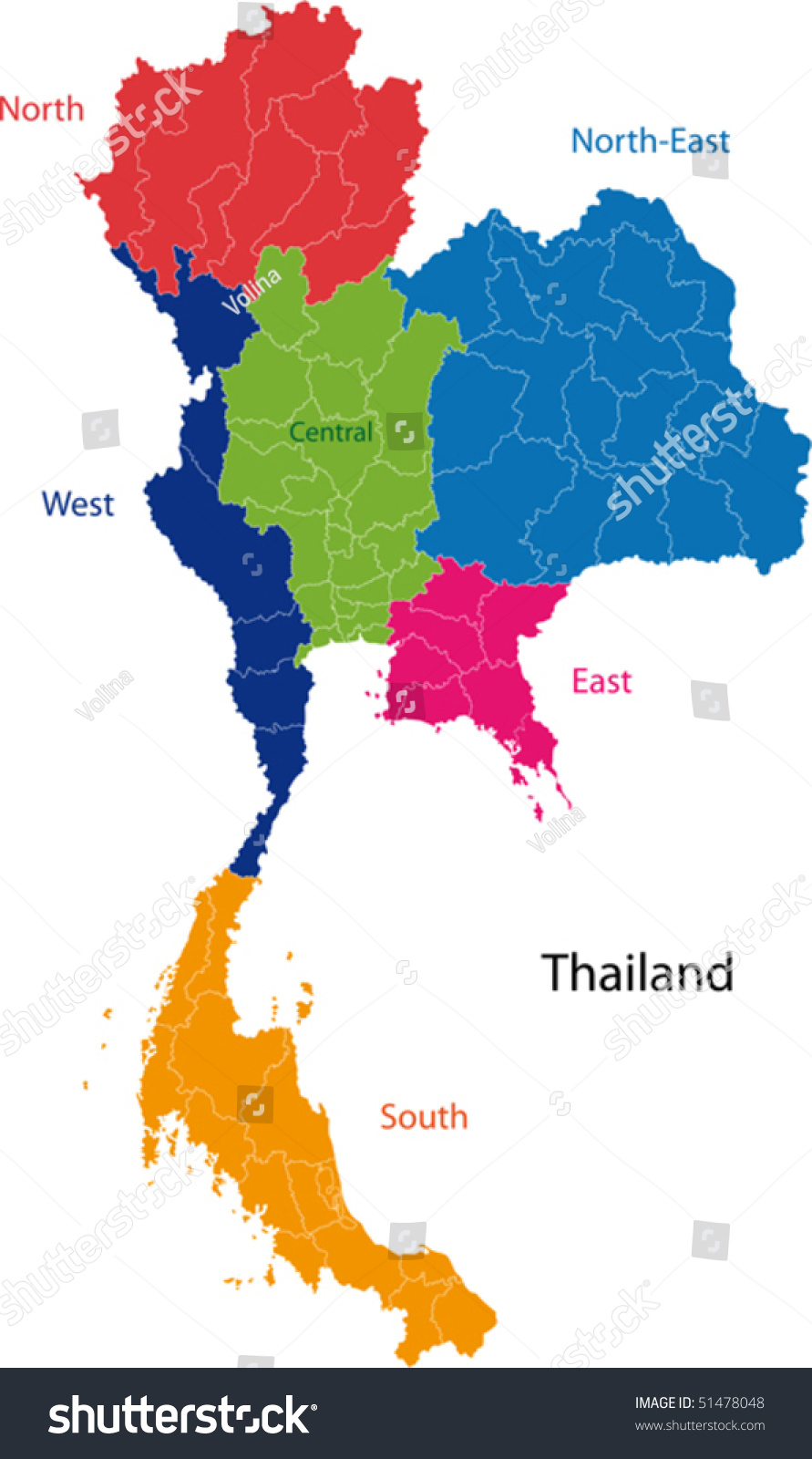


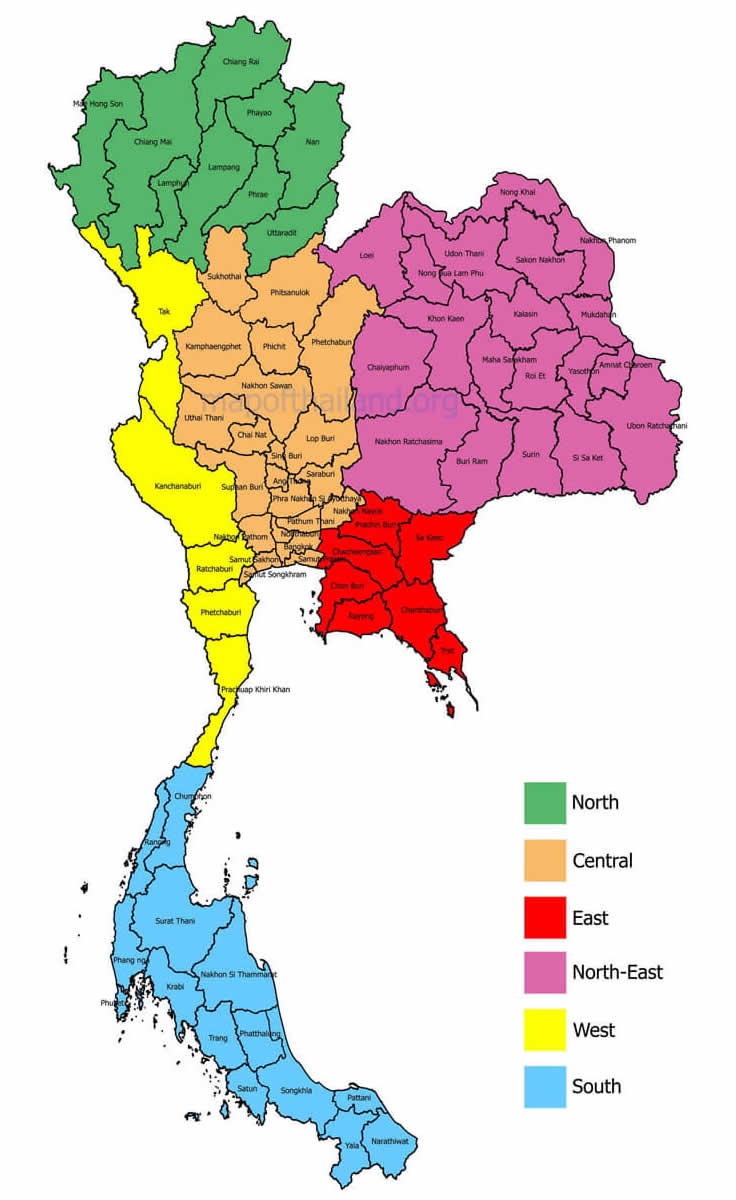

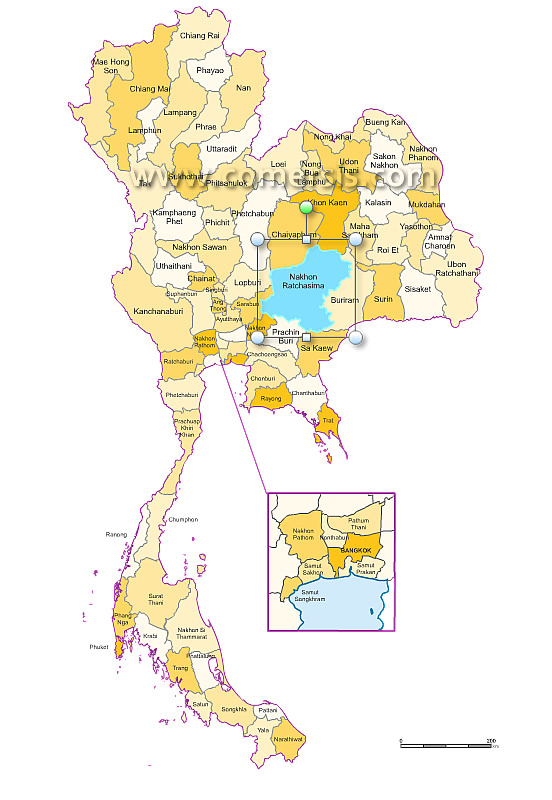
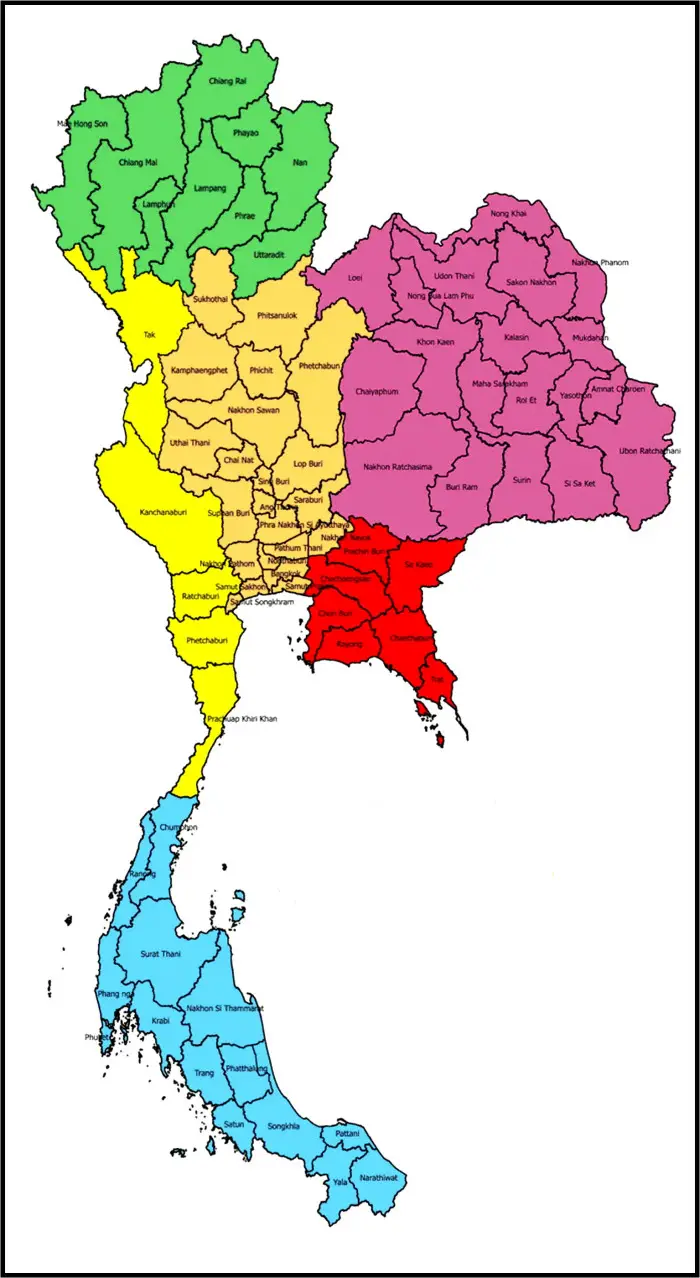

Closure
Thus, we hope this article has provided valuable insights into Navigating the Kingdom: A Comprehensive Guide to Thailand’s Provincial Map. We thank you for taking the time to read this article. See you in our next article!